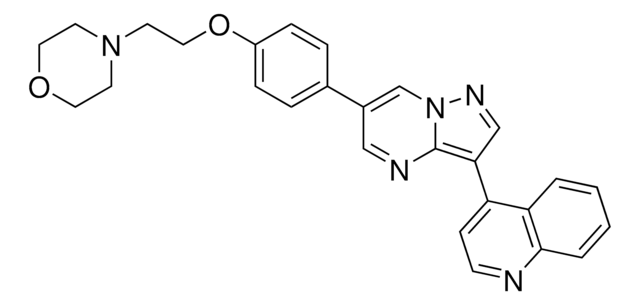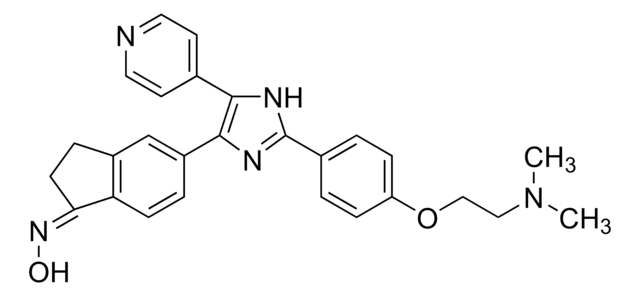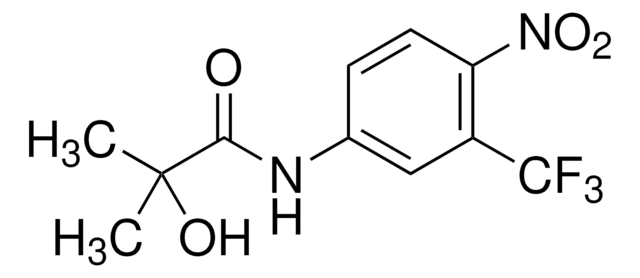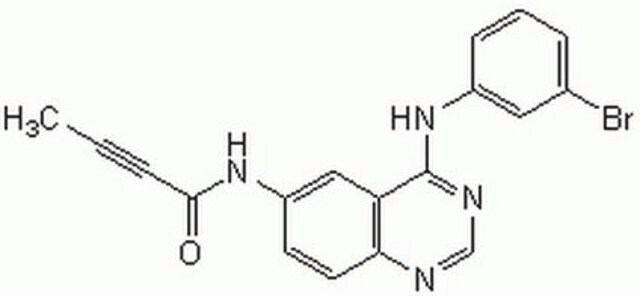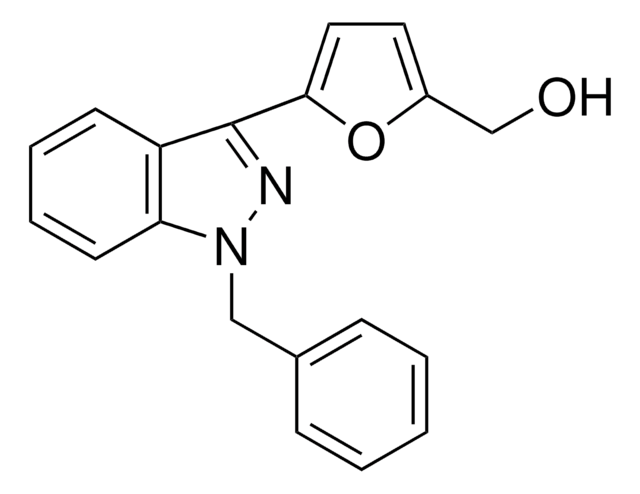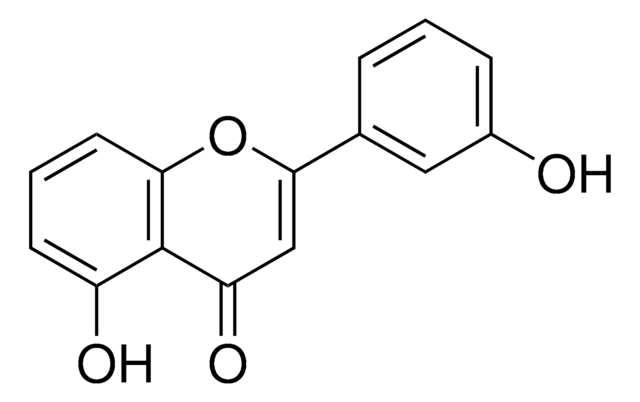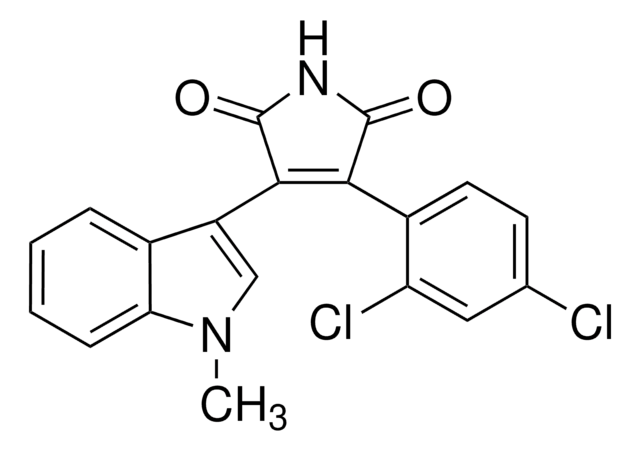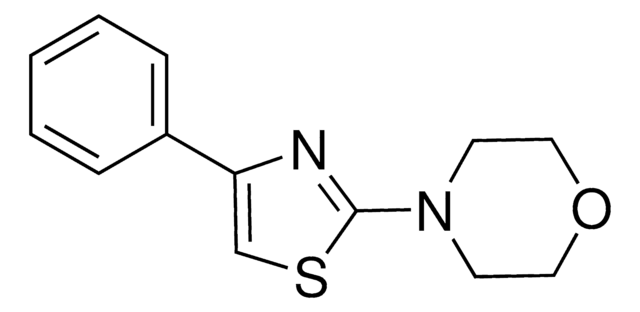Alle Fotos(1)
Wichtige Dokumente
SML1886
VPC-13566
≥98% (HPLC)
Synonym(e):
2-(7-Methyl-1H-indol-3-yl)quinoline
Anmeldenzur Ansicht organisationsspezifischer und vertraglich vereinbarter Preise
Alle Fotos(1)
About This Item
Empirische Formel (Hill-System):
C18H14N2
CAS-Nummer:
Molekulargewicht:
258.32
UNSPSC-Code:
51111800
NACRES:
NA.77
Empfohlene Produkte
Qualitätsniveau
Assay
≥98% (HPLC)
Form
powder
Farbe
white to beige
Löslichkeit
DMSO: 20 mg/mL, clear
Lagertemp.
2-8°C
SMILES String
CC1=CC=CC2=C1NC=C2C3=NC4=CC=CC=C4C=C3
Biochem./physiol. Wirkung
VPC-13566 is Binding Function 3 (BF3)-specific inhibitor of the androgen receptor. VPC-13566 potently inhibits AR transcriptional activity by displacement of the BAG1L peptide from the BF3 pocket. VPC-13566 inhibits the growth of various prostate cancer cell lines including an enzalutamide-resistant cell line and inhibits the growth of AR-dependent prostate cancer xenograft in mice.
Lagerklassenschlüssel
11 - Combustible Solids
WGK
WGK 3
Flammpunkt (°F)
Not applicable
Flammpunkt (°C)
Not applicable
Hier finden Sie alle aktuellen Versionen:
Analysenzertifikate (COA)
Lot/Batch Number
Die passende Version wird nicht angezeigt?
Wenn Sie eine bestimmte Version benötigen, können Sie anhand der Lot- oder Chargennummer nach einem spezifischen Zertifikat suchen.
Besitzen Sie dieses Produkt bereits?
In der Dokumentenbibliothek finden Sie die Dokumentation zu den Produkten, die Sie kürzlich erworben haben.
Kunden haben sich ebenfalls angesehen
Teresa Delgado-Goni et al.
Molecular cancer therapeutics, 15(12), 2987-2999 (2016-10-22)
Understanding the impact of BRAF signaling inhibition in human melanoma on key disease mechanisms is important for developing biomarkers of therapeutic response and combination strategies to improve long-term disease control. This work investigates the downstream metabolic consequences of BRAF inhibition
Eui Hyun Kim et al.
Journal of molecular endocrinology, 63(3), 175-185 (2019-08-14)
Oxidative stress (OS) is a major problem during in vitro culture of embryos. Numerous studies have shown that melatonin, which is known to have antioxidant properties, prevents the occurrence of OS in embryos. However, the molecular mechanisms by which melatonin
Nada Lallous et al.
Genome biology, 17, 10-10 (2016-01-28)
The androgen receptor (AR) is a pivotal drug target for the treatment of prostate cancer, including its lethal castration-resistant (CRPC) form. All current non-steroidal AR antagonists, such as hydroxyflutamide, bicalutamide, and enzalutamide, target the androgen binding site of the receptor
Unser Team von Wissenschaftlern verfügt über Erfahrung in allen Forschungsbereichen einschließlich Life Science, Materialwissenschaften, chemischer Synthese, Chromatographie, Analytik und vielen mehr..
Setzen Sie sich mit dem technischen Dienst in Verbindung.